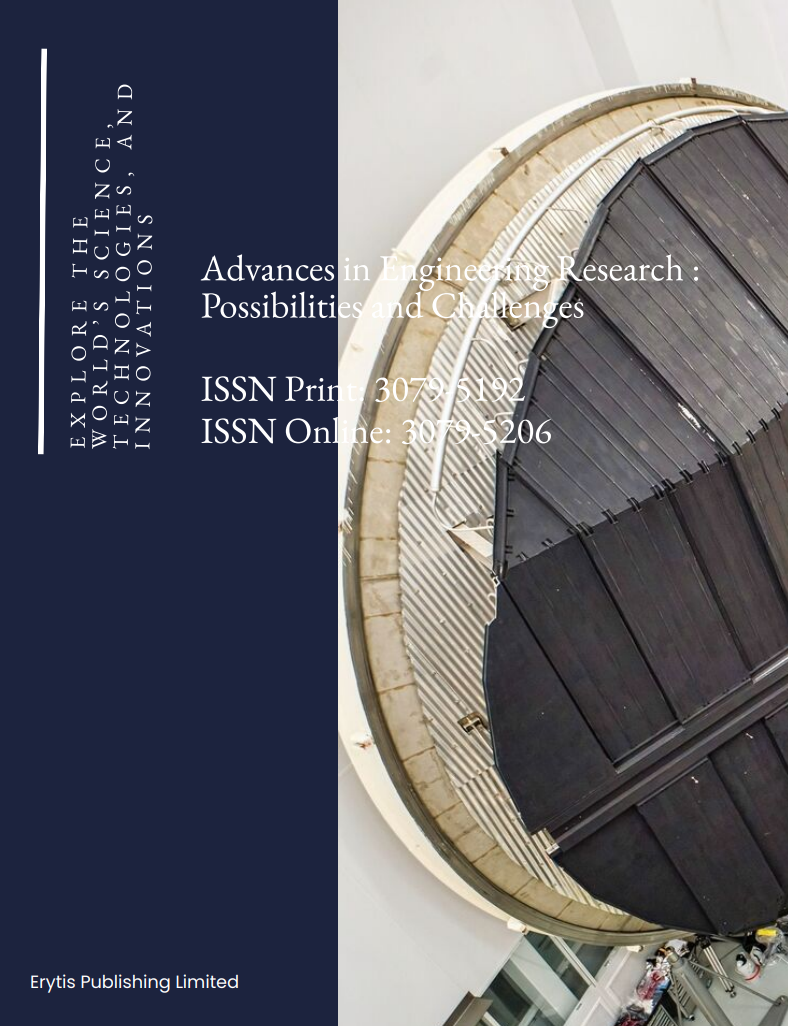
About the Journal
Advances in Engineering Research: Possibilities and Challenges (ISSN Print: 3079-5192, ISSN Online: 3079-5206) is an international peer-reviewed journal dedicated to advancing cutting-edge engineering research while addressing the complex challenges and transformative opportunities within modern engineering disciplines. The journal serves as a dynamic platform for researchers, engineers, policymakers, and industry leaders to share innovative solutions, theoretical breakthroughs, and practical applications that drive technological progress and sustainable development.
Scope and Topics
The journal welcomes submissions across all engineering fields, with a focus on interdisciplinary research and emerging trends. Key areas include but are not limited to:
Core Engineering Disciplines:
Mechanical, Civil, Electrical, Chemical, Aerospace, Biomedical, Environmental, and Materials Engineering.
Emerging Technologies:
Artificial Intelligence in Engineering, Robotics, Nanotechnology Energy Systems, Smart Manufacturing, IoT, and Quantum Computing.
Cross-Cutting Themes:
Sustainable Engineering Practices, Climate-Resilient Infrastructure, Ethical AI Applications, Engineering Education Innovation, and Global Collaboration in Technology Development.
Challenges and Solutions:
Case studies addressing real-world engineering problems, risk management, safety protocols, and scalability of innovative technologies.
Journal Features
Rigorous Peer Review: All submissions undergo a double-blind review process to ensure scientific validity, originality, and relevance.
Global Perspective: Encourages contributions from diverse geographical and cultural contexts, highlighting region-specific challenges and global engineering synergies.
Innovation-Driven: Prioritizes research that bridges theoretical advancements with practical implementation, fostering collaboration between academia and industry.
Open Dialogue: Publishes original research articles, comprehensive reviews, technical notes, and visionary perspectives to stimulate academic and professional discourse.
Target Audience
The journal caters to academic researchers, engineering practitioners, technology startups, policymakers, and graduate students seeking insights into the latest engineering innovations, methodologies, and policy frameworks.










